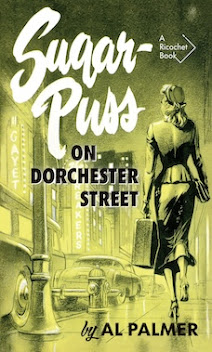
Another deadline approacheth. Tradition dictates that things here become a little less wordy and a bit more visual. There'll be no great theme this time – just a few uncommon covers that I find odd, silly or terribly amusant.
Popular Library's 1955 edition of The Acrobats, retitled Wicked We Love, leads the parade. The sexy substitution will come as no surprise to those familiar with the paperback publisher. Mordecai Richler received no special treatment – look what they did with Casino Royale.

I can't think of any other Canadian writer who experienced so many title changes at the hands of American publishers. In 1963, The Incomparable Atuk was fine with André Deutsch and McClelland & Stewart, but not Simon & Schuster.

The New York publisher not only replaced the title, but got rid of Len Deighton's wonderfully whimsical cover.
Yes, Len Deighton.

Canadian and British publishers seem to have been happy with Shovelling Trouble, as a title for Richler's 1972 collection of essays, but not the folks at Knopf down in New York.

Here, I cheat a bit. Shovelling Trouble and Notes on an Endangered Species and Others aren't exactly one and the same. Published in 1974, the latter scrambles the contents, and drops nine essays while adding nine others.
And finally, from 1983, this reflection of a great cultural divide. The Knopf cover – need I point to the right? – is by Lawrence Ratzkin, the very same man who twenty years earlier designed Stick Your Neck Out.





















































